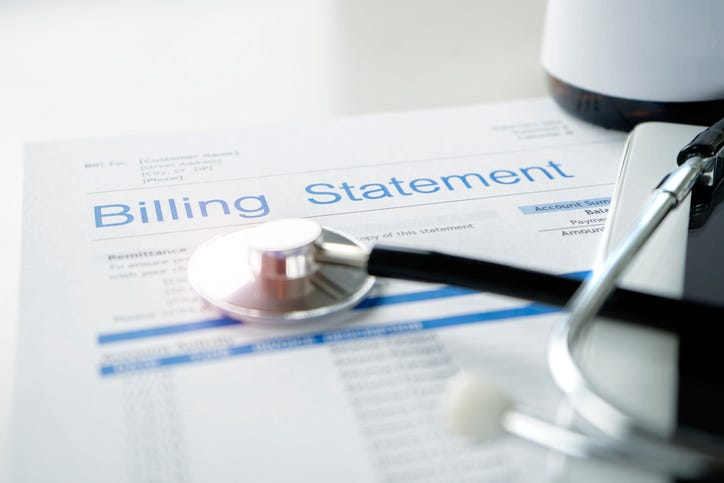
One state is considering legislation that would "de-weaponize medical debt" and protect millions of patients from health care debt collection.
Legislators in North Carolina are currently contemplating the bi-partisan Medical Debt De-Weaponization Act. The bill would strengthen financial protections for patients by establishing limitations on certain billing and collection practices, such as preventing hospitals from foreclosing on patients' homes or garnishing their wages, WBTV reported.
The bill would also require hospitals to offer financial assistance to patients based on their income, cap annual out-of-pocket expenses for patients, set minimum standards for charity care and mandate free coverage for patients at 200% of the federal poverty level, among other things.
According to a KFF poll conducted for a KHN-NPR investigation, about 100 million people in the U.S. — 41% of adults — have some form of health care debt. The debt problem in North Carolina is among the worst in the nation; only five states have a higher share of residents with medical debt on their credit reports, the report found.
"Medical debt can drive people into poverty and prevent people and their families from getting out of poverty," Mark Rukavina, a program director with the nonprofit health advocacy group Community Catalyst, told NPR.
A recent study by Innovation for Justice that ranked states based on their medical debt policies placed North Carolina at 28th in the nation. If legislators pass the De-Weaponizing Act, the state would jump to second place, said Gabriela Elizondo-Craig, a lead investigator on the project.
"There's a lot of real-world consequences for people where they're able to problem-solve their debt, they're able to go about their lives," Elizondo-Craig told WBTV. "So much potential here within just that bill."
The North Carolina Healthcare Association, which represents the hospitals in the state, hasn't taken a position on the bill -- but it is not so keen on the name.
"To suggest that hospitals 'weaponize' medical debt is nothing but political grandstanding," the association said in a statement to WBTV. "Hospitals do more than any other part of the health care field to assist vulnerable patients. Their doors are always open, regardless of a patient's ability to pay."
The bill is currently under review by the House banking committee.


